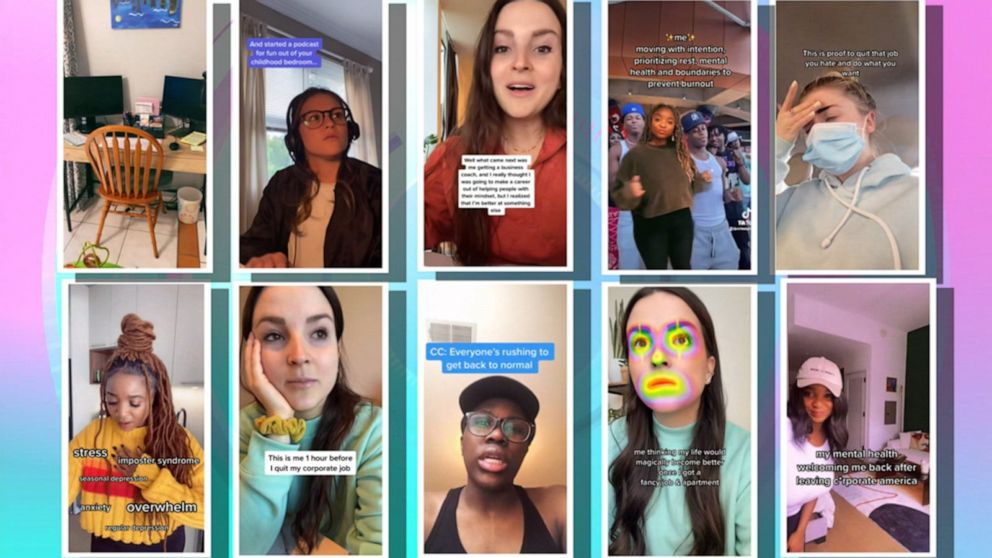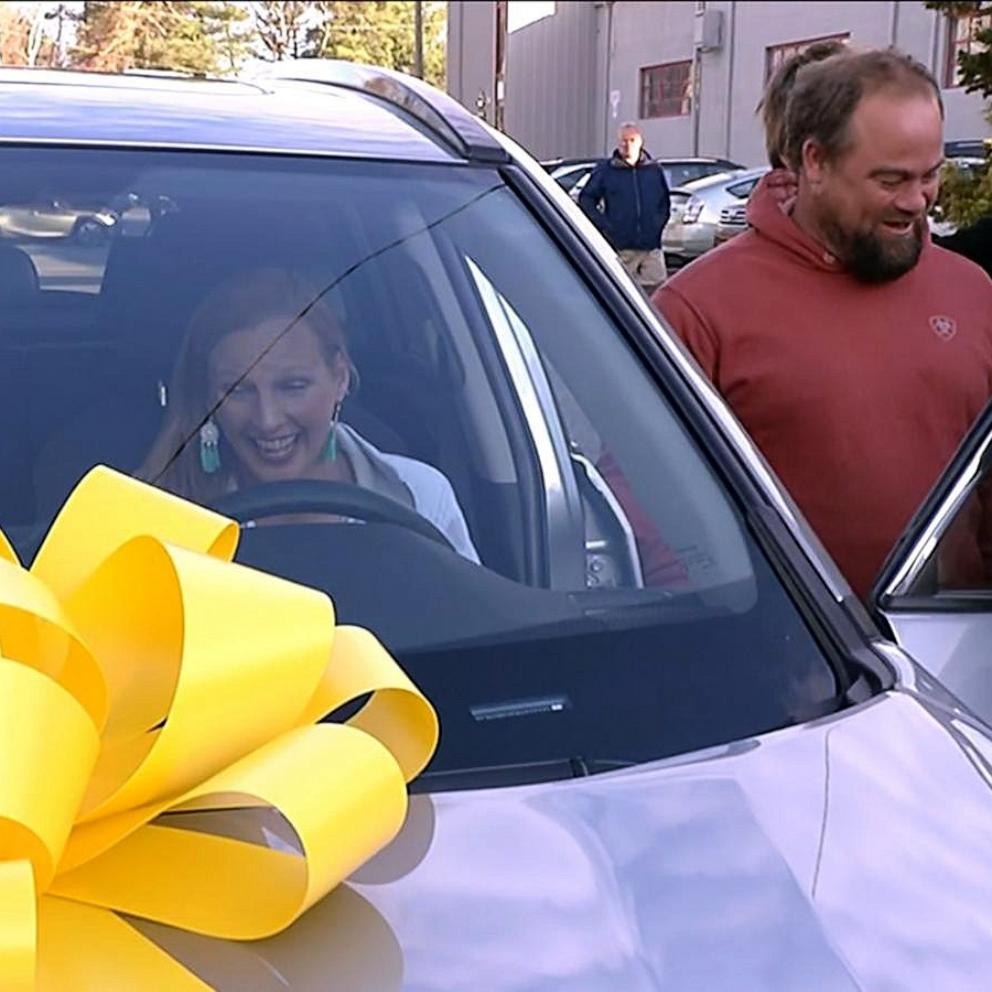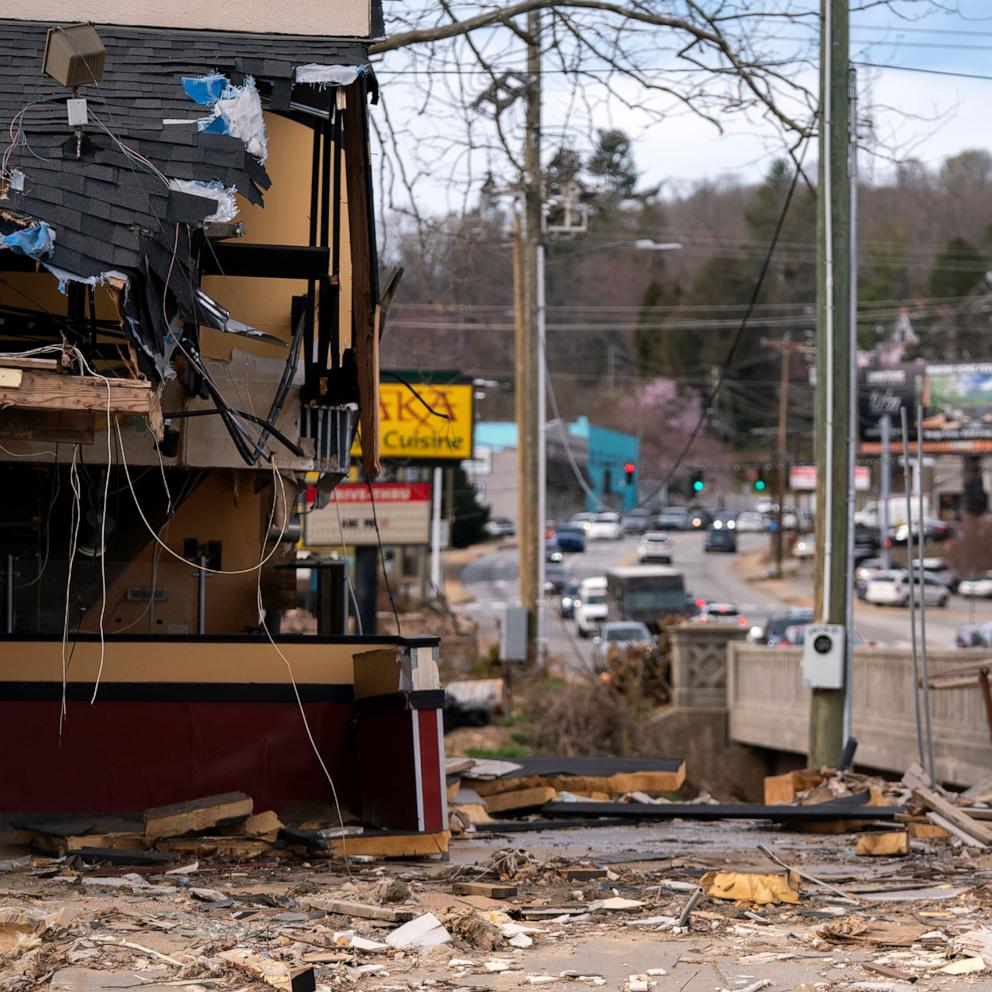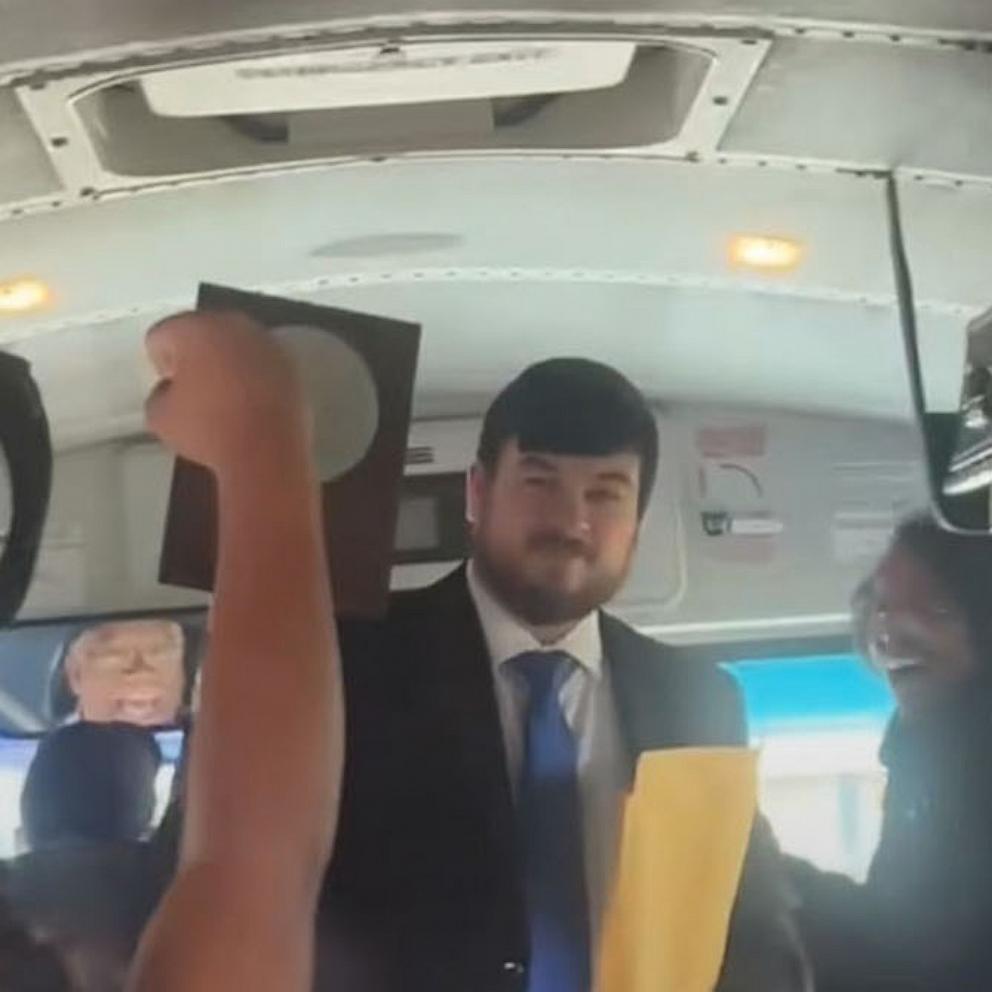‘Quit-Tok’: 'The Great Resignation' hits social media
As many across the country take part in what's being called "The Great Resignation," where employees are voluntarily leaving their jobs for higher paying roles, many are doing so publicly.
On social media platforms such as TikTok, users are using the app to announce publicly that they're leaving their jobs, often saying their decision is about finding happiness and focusing on mental health.
"I kind of was faced with a decision like, okay, you either need to commit to what you're doing, or you need to get out now because you're not happy at all," said Marisa Mayes, a TikToker who used the app to make her announcement.
Another TikTok creator, Tiffany Knighten, also took to the app when she left her job.
"Dealing with microaggressions in the workplace and inequality, pay disparities -- and I chose myself and prioritizing my mental health," Knighten said.
According to the Department of Labor, 4.2 million Americans quit their jobs in October alone, meaning that this year, a total of 38.6 million people voluntarily quit their roles.
And on Glassdoor, where former employees can anonymously leave reviews of their jobs or companies, many have said they left their previous roles because they were feeling burned out.
"On Glassdoor as a platform, we've seen more than 100% increase in mentions of the word 'burnout' in the reviews that we see," Glassdoor CEO Christian Sutherland-Wong told "Good Morning America."
For Gabby Ianinello, going public with her resignation helped her launch a podcast career under the name "Corporate Quitters" for those aiming to follow a similar path.
"I was like, why don't I be that person and to kind of share my story?" Ianinello told "GMA." "Share the struggles, share when I don't have money or when the budgeting is tight and share the wins, right? When things aren't working out really, really well."
And while the Department of Labor statistics suggest there are approximately one and a half jobs available for every person who remains unemployed right now, experts warn that the message quittoks send could be misinterpreted.
"You worry at times that people could be burning relationships, burning existing relationships, or set themselves up for problems with relationships in the future," Sutherland-Wong said. "If you want to share, be authentic, respectful and helpful. You can empower others without risking your own future."




